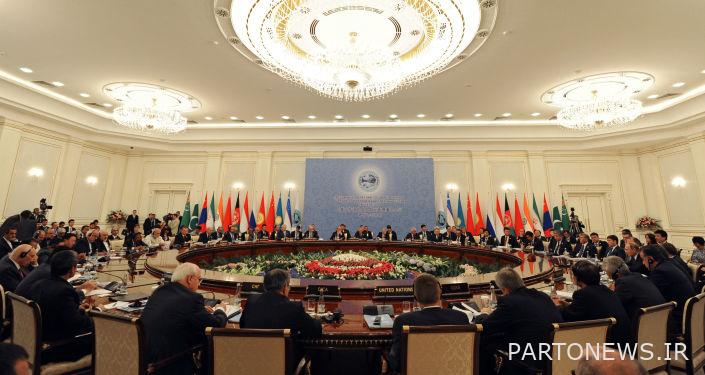Tajikistan, a country on the front lines

Le Monde points to Rahman’s strong intention to prevent the spread of Islamic radicalism.
Most of Afghanistan’s neighbors attended the Shanghai Cooperation Organization summit in Dushanbe, the capital of Tajikistan, on September 16 and 17, Sputnik reported, quoting the French newspaper Le Monde. Tajik President Emomali Rakhmon, who hosted the regional conference, condemned the “medieval sharia” imposed by the Taliban (the Taliban is a banned terrorist organization in Russia) in Afghanistan.
The leader of the Central Asian, Muslim and secular republic, meanwhile, accused the Taliban of “abandoning their previous promises to form an inclusive government” and said it feared spreading their destructive ideas in the region.
This year, Tajikistan became the head of the Shanghai Cooperation Organization (SCO), a multilateral regional union of Eurasian countries established 20 years ago at the initiative of China and Russia. The President of Tajikistan, a former member of the Soviet Communist Party, was re-elected President of Tajikistan in 2020 after winning 90% of the vote for the fifth time in a row, ruling the country for nearly 29 years. Of all his colleagues – the leaders of the Shanghai Cooperation Organization – Imam Ali Rahman is the only one who was in power in 1996, when the Taliban first seized Kabul. Tajiks are the second largest ethnic community in Afghanistan, with Tajiks sharing a common language and culture. Therefore, Imam Ali Rahman is the strongest opponent of the Taliban among all the leaders of the SCO member states. “In the next two or three years, extremist ideology will spread in Afghanistan, which means that the possibility of spreading these destructive ideas to neighboring countries and regions will also increase,” he said.
Vague statements
Although all the heads of state who gathered in Dushanbe were concerned about the situation in Afghanistan, the statements of each of them at the end of the summit showed the difference in their approach to the issue of Afghanistan. For example, Pakistani Prime Minister Imran Khan – the leader of the country that was the main initiator of the Taliban movement in the mid-1990s – called on the international community not to “demonize the Taliban”.
However, Imran Khan also stressed that Afghanistan should not be a haven for terrorists again and that the Taliban should keep their promises. And this is not an empty fantasy: seven Pakistani soldiers were killed Wednesday in the border areas of Afghanistan after being shot by the Taliban. This incident shows the ambiguity in the position of Islamabad: Pakistan, as the closest ally of the Afghan Taliban, is facing terrorist acts of the Pakistani Taliban on its territory …
In the case of Vladimir Putin, who attended the summit via video link from Moscow, he expressed the most pragmatic view, taking into account the concerns of both sides. He recalled that the Taliban government was an “interim institution” and lamented the absence of representatives of ethnic minorities in the government. “We have to work with the Taliban,” Putin said.
Approved by Vladimir Putin
Russia opened channels of communication with the Taliban long before it occupied Kabul. But some analysts point out that the Tajik president’s harsh remarks about the Taliban are likely to have been confirmed by Vladimir Putin. Maybe this is a message to Kabul with the help of the President of Tajikistan. “No country is in a hurry to recognize the Taliban government,” Russian Foreign Minister Sergei Lavrov said in Dushanbe.
Remaining in the Kremlin’s sphere of influence, Tajikistan plays an important role in the region. An article on the Diplomat website reads: “We should not underestimate Tajikistan’s importance in the Afghan crisis. Its long border with Afghanistan (more than 1,300 km), its relationship with Afghan Tajiks (25% of the population), “Having a Russian military base on its territory – the largest abroad – is all an important political lever in Tajikistan’s hands.”
The SCO summit ended with a military statement: “If the situation on the border with Afghanistan worsens, the countries of the region will take collective measures to ensure the security of Tajikistan.” Thus, Russia will host a new joint exercise in Tajikistan in October as part of CSTO – the Collective Security Treaty Organization. It is a Moscow-dominated military alliance that unites Armenia, Belarus, Kazakhstan, Kyrgyzstan, Russia and Tajikistan. Thus, Tajikistan finds itself at the “front line” of Central Asia.
The points made in this article are the views and opinions of the author and do not necessarily reflect the views of Sputnik.

